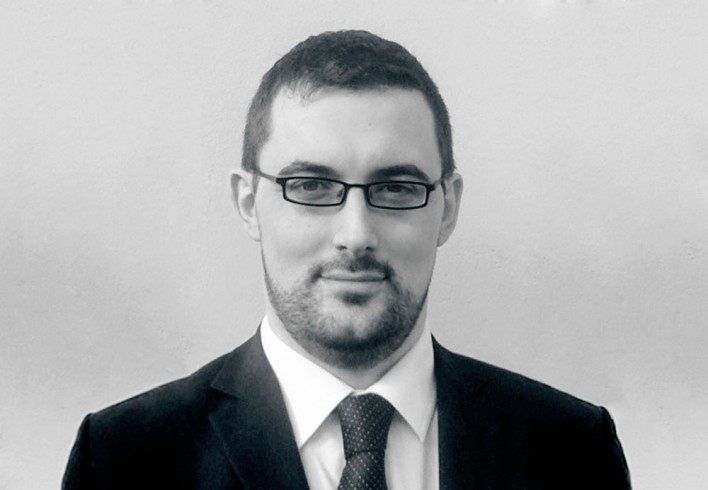Advice
An interview with Stephen Watkins
By: Sarah Walsh
Updated: 19 July 2016

This month, we will be talking with MyMind counselling psychologist Stephen Watkins about CBT, the nature-nurture debate and the little white lies we tell ourselves about our bad habits.
Why did you get into psychology?
My brother has autism. How he interacts in certain situations is fascinating to me. I’ve always wondered how his mind works in comparison to mine and in comparison to everyone else’s. Even before he was obviously autistic, when he was younger, I used to watch people. I’ve always been fascinated with human interaction: why we do this, why we do that. I’m interested in the white lies that we, as humans, tell ourselves all the time to help to make ourselves feel better. This is what I later found out was cognitive dissonance.
What is cognitive dissonance?
Cognitive dissonance is what we call the excuses that we come up with for our behaviour. For example, if you were a smoker, and someone confronted you about it or you started to feel bad about it, it would be the lies you come up with to excuse your behaviour: “I only smoke socially,” “I smoke to help with my anxiety.” I recently conducted research into anxiety levels in smokers, non-smokers and those who had quit smoking and the smokers had the highest levels of anxiety. I love these white lies, because I used to tell myself these lies all the time.
What contributes to how one person’s mind works compared to others?
That’s the famous nature-nurture debate. I’m more inclined towards nurture. It’s very hard to fight your genes or the chemicals in your brain. At least with nurture, you can go against your habits. There’s no practical reason to fall down in the nature side. I believe that people can change their behaviour. Even if you are genetically pre-disposed to something, why can’t you change?
Why is Cognitive Behavioural Therapy (CBT) helpful?
CBT is the most practical approach. It works because it identifies negative behaviours that are affecting your life and seeks to change them. It doesn’t deal with the past. Knowing the past, knowing why you are a certain way, doesn’t change how you are. What is the point in looking at the past when it is the only thing you can’t change?
Do you think that the psychoanalytic approach is a waste of time?
No, there’s no waste of time. I’ve had clients who CBT didn’t work for. Some people need to identify what caused their negative behaviour in order to stop it from happening again. CBT works very well for a portion of the population. If I was going for counselling, I would purposefully go for CBT, because I am a practical person. I like to fix a problem when I see one. I would be going to counselling to fix a problem and CBT would be the best option for that.
Do you feel that, as a mental health professional, you can fix yourself?
When my brother faced mental health issues, I wouldn’t counsel him because he would be influenced by my view of him from our childhood and he would be influenced by his view of me. Now imagine that on yourself. I lie to myself all of the time, that’s what got me interested in psychology. How could I fix myself if I can’t be objective of myself? And how could I possibly be objective of myself? I don’t think anyone could keep that distance from themselves.
Is it difficult to keep that distance between yourself and your clients?
It is a challenge. With therapy, when a client succeeds, it’s their success. When they fail, it’s your failure, because you always blame yourself. We all have phrases that we tell ourselves – “I’ve done the best I can”. This helps to put things in perspective.
MENTAL HEALTH PROFESSIONALS WORKING WITH Other ISSUES:
Approach: Cognitive Behavioural Therapy (CBT) , Humanistic & Integrative Psychotherapy , Psychodynamic Therapy , Other , Somatic Experiencing , Mindfulness , Person-Centred Therapy , Psychoanalytic Psychotherapy
Works with: Individual Session
Specialities: Anger , Anxiety , Bereavement / Loss , Depression , Eating Disorder / Body Image , Personal Development , Relationship issues , Self-Esteem , Stress , Trauma , Other
Next avaialble appointment: 10:00 25 February 2025
Approach: Cognitive Behavioural Therapy (CBT) , Humanistic & Integrative Psychotherapy , Person-Centred Therapy , Psychodynamic Therapy , Mindfulness
Works with: Individual Session
Specialities: Anxiety , Bereavement / Loss , Depression , Isolation / Loneliness , Personal Development , Relationship issues , Self-Esteem , Stress , Suicidal Ideation / Self Harm , Trauma , Other
Next avaialble appointment: 10:00 26 February 2025
Approach: Cognitive Behavioural Therapy (CBT) , Humanistic & Integrative Psychotherapy , Person-Centred Therapy , Psychodynamic Therapy , Other
Works with: Individual Session
Specialities: Addiction , Anger , Anxiety , Bereavement / Loss , Depression , Domestic Violence / Abuse , Eating Disorder / Body Image , Relationship issues , Self-Esteem , Sexuality (LGBTQIA+) , Stress , Suicidal Ideation / Self Harm , Other
Next avaialble appointment: 11:00 24 February 2025
NEXT ARTICLE
Solution Focused Brief Therapy
Search
Get The Support You Need
From One Of Our Counselors
News
Isolation
Anxiety
Depression
Relationship Issues
Counselling
Personality Disorder
Addiction
Trauma
Children and Adolescent
Anger
Bereavement
Chronic Illness
Communication Issues
Eating Disorder
Post natal depression
Stress
LGBTQI+
Panic Attack
OCD
Resilience
Parental support
Men's Mental Health
Category List
All Posts
News
Isolation
Anxiety
Depression
Relationship Issues
Counselling
Personality Disorder
Addiction
Trauma
Children and Adolescent
Anger
Bereavement
Chronic Illness
Communication Issues
Eating Disorder
Post natal depression
Stress
LGBTQI+
Panic Attack
OCD
Resilience
Parental support
Men's Mental Health

